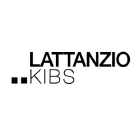WORKING WITH DG ECHO AS AN NGO PARTNER | 2021 - 2027
PROCUREMENT
Partners can purchase from suppliers on other donors’ list as they would purchase from any other supplier, as long as the quality assurance rules of DG ECHO in the document “Provisions on medical and food supplies applicable to actions funded under the EU Humanitarian Partnership Certificate 2021 –2027” are met. The difference is that since these suppliers have been pre-certified by those donors, it should be easier for Partners to obtain the proof that the standards are met.
Mosquito nets are not considered as medical supplies while ready-to-use therapeutic food (RUTF) to address acute malnutrition is considered as such.
Pre-certification of suppliers does not fall within the scope of the mission of the PIC/S as the aim of PIC/S is to develop common standards in the field of Good Manufacturing
Practices (GMP) hence to ensure that the production of medicines meets the required quality standards.
Costs of staff incurred before the starting date of the action are not eligible. This includes the costs of the persons (e.g. administrative) working on the procurement
procedures. Only costs for the purchases would be eligible, as they would be delivered during the project duration. The same applies to storage costs.
The ceiling of EUR 60 000 does not apply to sub-contractors. This threshold applies to financial support to third parties / IPs (which broadly refers to ‘sub-granting’). (See FAQs on Implementing Partners).
Subcontractors participate in the action by carrying out action tasks for the beneficiary, which could consist for example in the purchase of goods, works or services that are identified as action tasks. On the other hand, suppliers of goods, works or services do not implement action tasks themselves, but only make resources available to the beneficiary.
No. According to art. 9.3 MGA, “the beneficiaries must ensure that their contractual obligations under Articles 11 (proper implementation), 12 (conflict of interest), 13 (confidentiality and security), 14 (ethics), 17.2 (visibility), 18 (specific rules for carrying out action), 19 (information) and 20 (record-keeping) also apply to the subcontractors. The beneficiaries must ensure that the bodies mentioned in Article 25 (e.g. granting authority, OLAF, Court of Auditors (ECA), etc.) can exercise their rights also towards the subcontractors.”
The beneficiary that did not request several offers, it must — in case of a check, review, audit or investigation — be able to show that the purchase was made in accordance with its purchasing policy, that the price was market-value and that the criteria defining quality were clear and coherent with the purposes of the purchase.
Each person participating in the procurement procedure of the partner should avoid conflict of interest. A best practice is to entrust the decision of awarding a contract to an evaluation committee rather than to a sole person. Members of the evaluation committee should be aware that they need to disclose the existence of a conflict of interest. The beneficiary should have in place clear rules and guidance to staff on what to do in case they or one of their colleagues are in a situation of conflict of interest. These rules should provide information on who to contact for advice or disclose the conflict to and, where necessary, take the appropriate action. It is good practice that staff involved in the procurement process formally signs a declaration of no conflict of interests before performing their duties.




